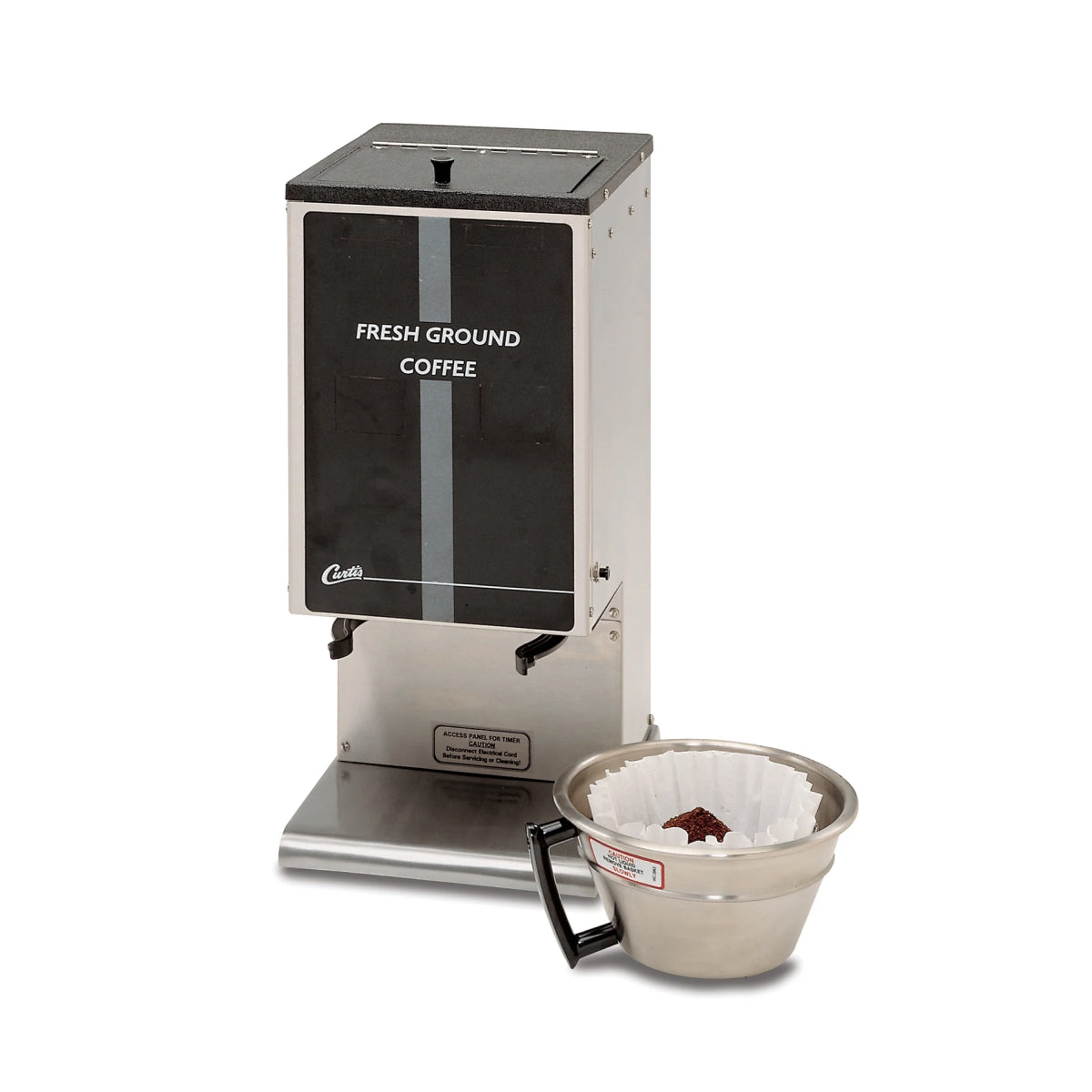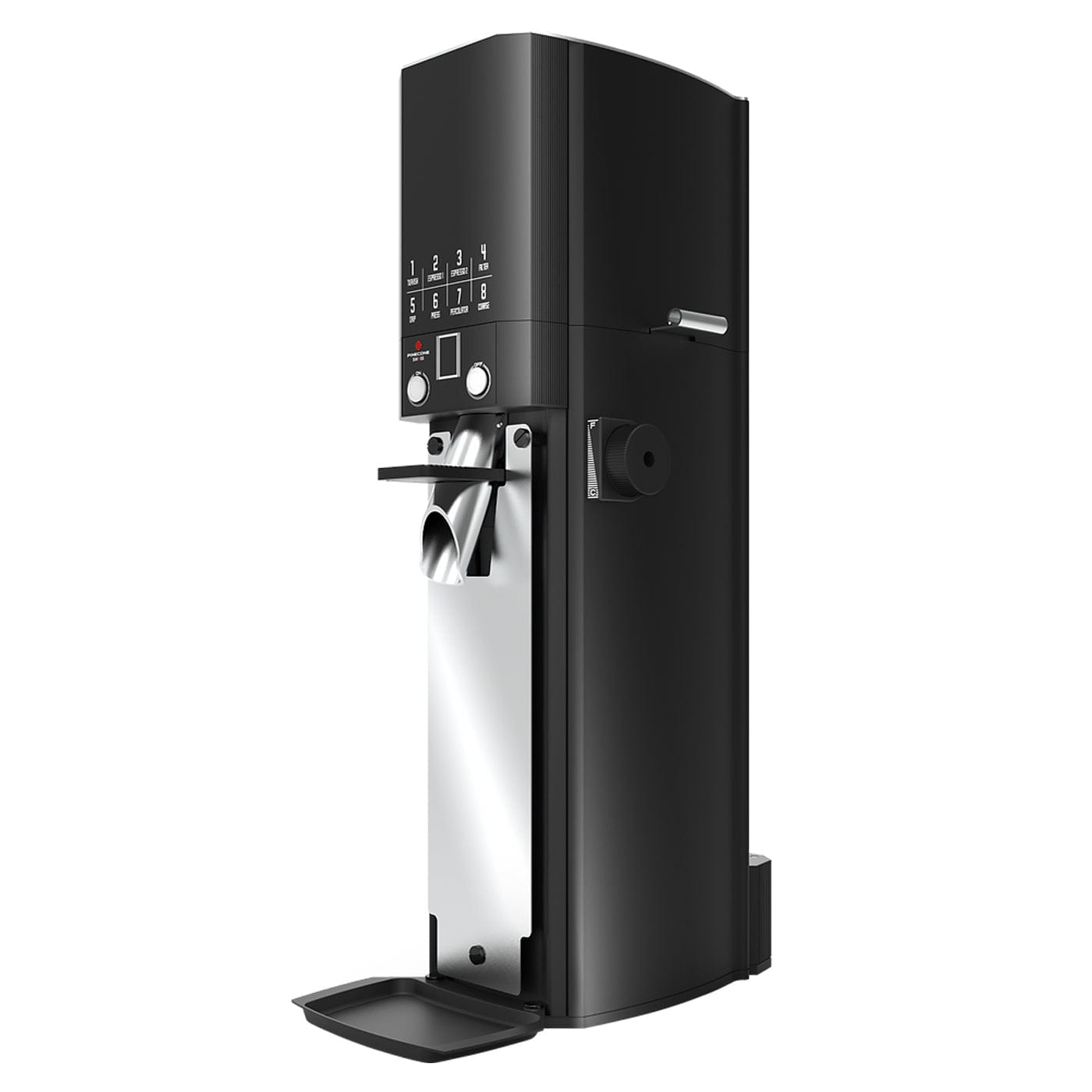Industrial Coffee Grinder Overview: Boost Performance and High Quality
In the affordable landscape of coffee production, picking the best commercial coffee grinder plays a crucial role in improving both efficiency and product top quality. Comprehending the subtleties of different mill types and essential attributes-- such as personalized grind settings and durable construction-- can significantly affect the final flavor profile of the coffee. In addition, the optimization of the grinding process, paired with persistent upkeep, is essential for sustaining efficiency in time. As we check out these essential components, it ends up being obvious that the effects expand past plain tools option, affecting general service success in means that require closer evaluation.
Recognizing Mill Types
When choosing an industrial coffee grinder, understanding the various kinds readily available is important for enhancing both flavor removal and functional efficiency. Both primary kinds of mills are blade mills and burr mills. Blade mills utilize sharp blades that chop coffee beans right into inconsistent dimensions, leading to irregular removal and potentially undesirable flavors. While blade mills are usually extra appropriate and economical for small-scale operations, they are typically not recommended for commercial use.

Eventually, picking the best sort of grinder is indispensable to maintaining high quality and efficiency in coffee manufacturing, making it imperative for organizations to invest in top notch burr grinders for ideal outcomes.
Trick Features to Take Into Consideration
Selecting a commercial coffee mill calls for mindful consideration of numerous key functions that can dramatically influence both performance and the general coffee experience. Among the key aspects to assess is the grinding system. Burr mills are generally preferred over blade grinders, as they give a consistent grind size, which is vital for optimum removal and taste.
An additional vital feature is the grinder's ability. Depending upon the volume of coffee you need to process, select a design that can handle your requirements without sacrificing speed or quality. Furthermore, take into consideration the work setups supplied. A functional grinder with several settings enables you to tailor the grind dimension to various developing techniques, improving the coffee's taste account.
The building material also plays a duty in resilience and maintenance. Stainless steel components frequently provide longevity and are simpler to clean, which is important for keeping health standards. Finally, review the mill's noise degree, particularly in a hectic coffee shop or manufacturing atmosphere, where excessive sound can be turbulent. Investing in a mill that balances these features can substantially enhance both functional efficiency and the quality of the coffee offered.
Optimizing Grinding Refine
To attain the best results in coffee preparation, maximizing the grinding procedure is vital. The grind size substantially affects removal, taste, and overall top quality of the made coffee.


Furthermore, keeping an eye on the grinding rate can maximize the procedure. Slower grinding frequently produces less heat, preserving fragile tastes and fragrances. Alternatively, much faster grinding might produce extreme warmth, adversely affecting the coffee's high quality.
Maintenance and Care Tips
Correct maintenance and care of commercial coffee mills are crucial for ensuring optimal efficiency and long life. Routine cleaning is the structure of upkeep; deposit accumulation can affect taste and grinding performance. It is a good idea to clean the grinder after each usage, wiping down the exterior and removing any type of coffee grounds from the burrs.
Furthermore, examine the grinding burrs for damage. Dull burrs can compromise work uniformity, so they must be changed as necessary. Industrial Coffee Grinder. Occasionally calibrating the grinder is also essential, as this maintains the wanted work dimension for various brewing techniques
Lubrication of moving parts need to be carried out according to the producer's requirements, as this decreases rubbing and lengthens the life of the devices. It is necessary to utilize food-grade lubricants to ensure safety and security and conformity with health policies.
Last but not least, maintain the grinder in a steady and browse around this site completely dry setting to avoid corrosion and deterioration. By adhering to these maintenance and care ideas, operators can enhance the effectiveness of their industrial coffee grinders while ensuring high-quality result and extended functional life.
Roi Evaluation
Assessing the return on investment (ROI) for industrial coffee mills is critical for companies seeking to enhance their coffee manufacturing abilities. A detailed ROI analysis aids establish the financial stability of purchasing high-grade grinders, enabling companies to consider the preliminary prices versus prospective gains.
Evaluate the purchase price of the grinder, including setup and any type of needed modifications to existing infrastructure. High-performance mills typically lead to minimized grinding time and increased throughput, which can considerably improve productivity.
Furthermore, think about the influence on item top quality. find here Industrial Coffee Grinder. Superior grinders yield a more regular grind size, which can boost flavor profiles and client fulfillment, eventually driving sales. By boosting the high quality of the end product, businesses can justify higher rates, resulting in increased income
Verdict
In recap, a commercial coffee mill plays a pivotal role in improving both efficiency and item top quality within coffee production. By picking high-quality burr mills equipped with essential attributes such as adjustable work settings and long lasting building, organizations can make certain optimum taste removal. In addition, regular maintenance is critical for maintaining grinder performance and taking full advantage of customer fulfillment. Inevitably, the tactical financial investment in a dependable mill contributes significantly to enhanced earnings and competition in the coffee industry.
In the affordable landscape of coffee production, picking the right commercial coffee mill plays an essential function in boosting both efficiency and product high quality. The 2 key kinds of mills are blade grinders and burr mills. Within the burr grinder group, there are flat burr mills and cone-shaped burr mills, each with its benefits. Burr mills are normally liked over blade mills, as they provide a constant work dimension, which is crucial for optimal extraction and flavor.
In summary, a commercial coffee mill plays a pivotal role in improving both effectiveness and item top quality within coffee production.